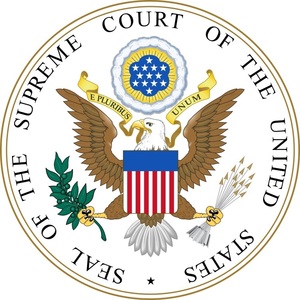Refiners file brief in Supreme Court SRE case

February 23, 2021
BY Erin Krueger
Affiliates of HollyFrontier and Wynnewood Refining on Feb. 22 filed a brief with the U.S. Supreme Court arguing their position against the Tenth Circuit Court of Appeals’ January 2020 ruling on small refinery exemptions (SREs).
The brief was filed the same day that the U.S. EPA announced it was changing its position regarding the SRE challenge and now supports the Tenth Circuit Court’s ruling. That change in stance has been applauded by representatives of the biofuels industry.
The Tenth Circuit Court of Appeals on Jan. 24, 2020, issued a ruling that struck down three SREs that the court said were improperly issued by the EPA and held that the agency cannot “extend” exemptions to any small refineries whose earlier, temporary exemptions had lapsed. The court also held that any alleged hardship justifying an SRE must be caused by Renewable Fuel Standard compliance and that the EPA had acted arbitrarily and capriciously by deviating without acknowledgement or stated reason from its prior position that refineries generally do not incur disproportionate economic hardship from purchasing renewable identification numbers (RINs) on the open market because the refineries “pass through most or all of their RIN purchase costs” to their customers.
Advertisement
Advertisement
The ruling stemmed from a May 2018 challenge brought against the EPA by Renewable Fuels Association, the National Corn Growers Association, the American Coalition for Ethanol and the National Farmers Union.
The court’s decision was challenged by affiliates of Wynnewood Refining and HollyFrontier. The refiners in March 2020 requested a rehearing en banc of the Jan. 24 ruling. Those petitions were rejected by the court in April 2020.
Advertisement
Advertisement
The two refining companies escalated their challenge over the court ruling in September 2020 when they filed a petition for a writ of certiorari with the Supreme Court. The U.S. Department of Justice filed documents with the court in December recommending against Supreme Court review of the Tenth Circuit Court’s ruling. Despite that recommendation, however, the Supreme Court on Jan. 8 granted the petition for review filed by Wynnewood and HollyFrontier. The filing made by HollyFrontier and Wynnewood on Feb. 22 presents its argument opposing the lower court’s decision that in order to remain eligible for a hardship exemption, a small refinery must have received uninterrupted, continuous hardship exemptions for every year since 2011.
In the filing, HollyFrontier and Wynnewood argue that Tenth Circuit Court’s position that SREs can only be extended to a refinery that has received uninterrupted, continuous exemptions is counterintuitive. The refiners also argue that the lower court’s interpretation of the term “extension” is wrong, in that the word can mean “both an increase in the length of time and the offering or making something available to someone, such as the granting of a benefit.”
A full copy of the filing can be downloaded from the Supreme Court’s website.
Related Stories
The U.S. EPA on July 8 hosted virtual public hearing to gather input on the agency’s recently released proposed rule to set 2026 and 2027 RFS RVOs. Members of the biofuel industry were among those to offer testimony during the event.
The USDA’s Risk Management Agency is implementing multiple changes to the Camelina pilot insurance program for the 2026 and succeeding crop years. The changes will expand coverage options and provide greater flexibility for producers.
EcoCeres Inc. has signed a multi-year agreement to supply British Airways with sustainable aviation fuel (SAF). The fuel will be produced from 100% waste-based biomass feedstock, such as used cooking oil (UCO).
President Trump on July 4 signed the “One Big Beautiful Bill Act.” The legislation extends and updates the 45Z credit and revives a tax credit benefiting small biodiesel producers but repeals several other bioenergy-related tax incentives.
CARB on June 27 announced amendments to the state’s LCFS regulations will take effect beginning on July 1. The amended regulations were approved by the agency in November 2024, but implementation was delayed due to regulatory clarity issues.
Upcoming Events










